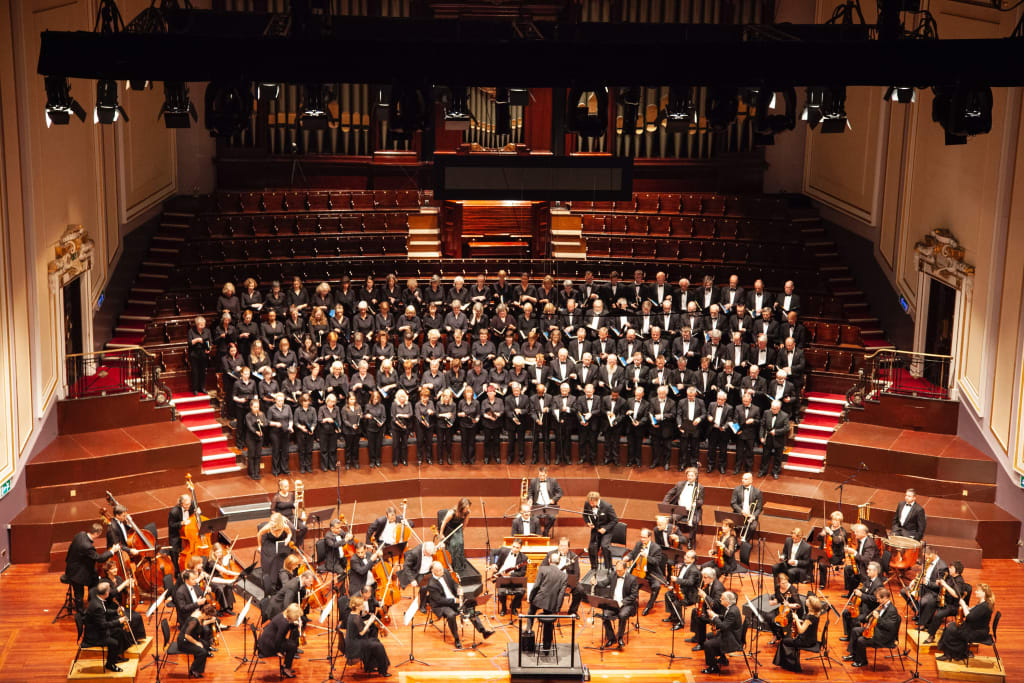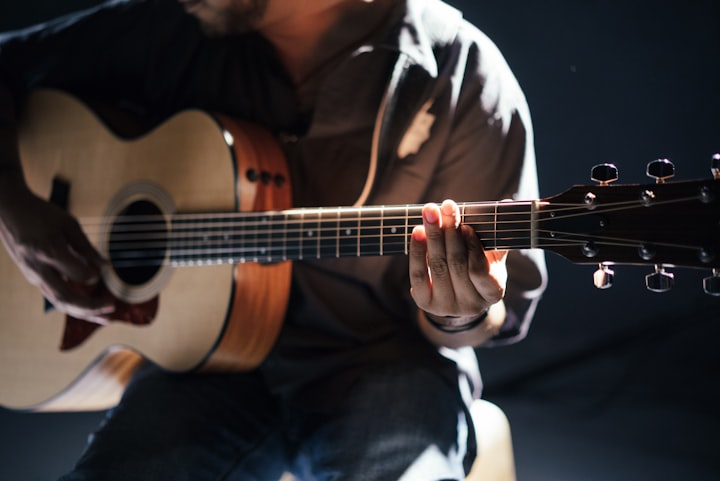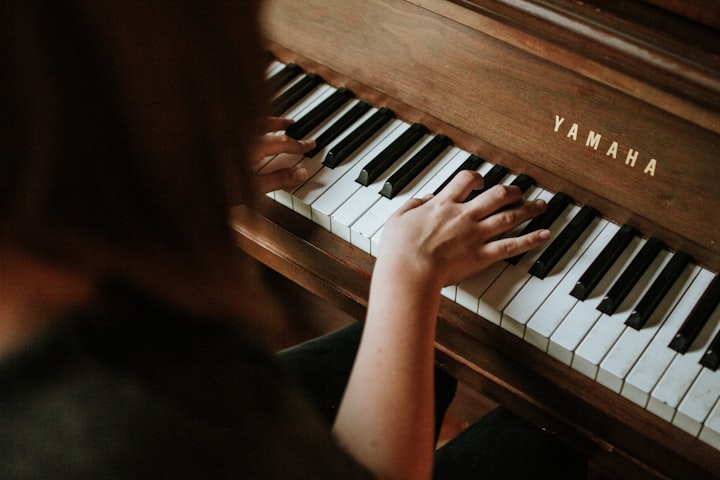Where Will Classical Music Be A Hundred Years From Now
How important classical music will be in the future?

As a fanatic classical music fan, I want this music genre to exists forever. And that it won’t stop. It must be told generations from now on. And I think that people, these days, don’t even know who Mozart is, or Beethoven, Vivaldi, or whatever composer on earth there is.
I try to teach my children about classical music. Unfortunately, they prefer to listen to pop music. Especially the oldest. She is at a certain age that she compares her tastes with that of her friends.
I have been playing the violin since the age of seven, and I have been playing in orchestras since the age of nine. I have continued to play until today. I even considered going to the conservatory next year (plans are not fully, but major of the plans are known now), and I have so much passion for it.
Besides my passion for classical music, there are a lot of things that research says about classical music: it is good for our health. That is a consideration worth thinking about to keep classical music a hundred years from now.
Not only this written above, but classical music is so much more fun than listening to. When you educate yourself about the composers, music they wrote and the performers, you will end up having fun reading the fun facts about classical music as well.
This makes me realize that classical music is not in every home. So, where will classical music be in a hundred years? If yes, in what form and do concert halls still be there? Do I need to be concerned about the future of classical music?
To answer these questions, here is a brief story about classical music genres. There are so many styles (genres or periods in classical music) developed in the last centuries. How have these styles passed on to the next generations? What is the role of parents in this process, and how can classical music musicians educate children and their parents? How can we involve parents in the musical education of their children?
All these questions just came up to me. In my opinion, all these questions need to be answered to know how we can educate the next generations, so that classical music will still exist in the next hundred years.
I will try to answer them, from my acknowledgement and as far as I have watched the classical music industry from afar. It is a big industry with a lot of good musicians, especially these days. There is more soloist than years ago.
In what form do the concerts halls will be there in the future if they are still there?
I believe that concert halls will still be their hundred years from now. Concert halls need to go to change the programming now and then to be the first in line to accept the changes in this industry. It is hard sometimes. Also, the concert halls need to hold to the traditional way of playing classical music pieces.
On the other hand, these concert halls must be renewing in their concert programmes as well as programming the unknown composers. Also, the concert halls need to programme the unknown composers from the times of Bach, Mozart and Beethoven lived as well because they deserve to be heard as well. Why does the music of Bach, Mozart and Beethoven make it great, and why don’t we hear the music of their colleague’s?
Do I need to be concerned about the future of classical music?
Well, to answer this question, I have to tell you, that it already has survived for ages. Music is of all sorts and kinds. These days pop genres are taking over the interest of people. What about classical music? A lot of people say that classical music is boring. In my opinion, it is far from boring. What have we done to classical music education, to fall in love with classical music, and besides that, listening to other music genres as well?
I think that, somehow, pop music will take it all over, and that composer from earlier periods will get lost in the crowd. Also, I am afraid that nobody will play an instrument, or an instrument you can play in the pop music industry.
And yet, I am optimistic, because I am also a believer that, if the next generation is right educated, classical music will exist forever too.
How have these styles passed on to the next generations?
All the styles in classical music have been passed through the next generation because, at that time, children of composers became musicians or composers as well as their parents. Their parents told them about music, how it is written, how you have to compose, but also they went to conservatories as well and have been taught by the best teachers there were at that time.
In centuries ago, classical music was more for entertainment and thus more common to listen to than it is these days. The reason why people go to a concert or listen to music has been changed over the years.
Also, it is by playing the pieces that have been written at that time, and the styles before. Like Vivaldi is not the same time as Mozart. So, Mozart learned in school the styles Vivaldi wrote his pieces.
What is the role of parents in this process?
In case of passing on the classical music genre to the next generation, we need parents who have been educated very well about this genre, stimulate their children when practising their instrument, positively.
As parents, learn about the instrument your child is playing, and learn about the pieces they are playing. This helps with classical music education as well, as well as being involved with your child’s activities. What helps, is asking what your child likes about the piece.
How can classical music musicians educate children and their parents?
When you listen to opera, for example, you hear what daily life looked like at the time this opera has been written. It is thus important that you know at what time the composer lived as well at what time the piece has been written, so you know how to play, and listen to that particular music.
Also, Shostakovitch for example lived in a period that there were going on a lot of things in his country, and he put his feelings into music. You can, when you listen carefully, hear that in his music by knowing and hearing that a piece is written in a minor key and with a lot of dark (low) notes.
Beethoven, for example, became deaf in his life, and you can hear that the music of the Pastoral Symphony — his sixth symphony — is full of dark tones.
“How delighted I shall be to ramble for a while through bushes, woods, under trees, through grass, and around rocks” — Beethoven in a letter written in May 1810
How can we involve parents in the musical education of their children?
Parents can and should be playing a big role in stimulating the musical education of their children, as well as their other family members and their teachers. It is important that also parents should be stimulated by the teachers of the children so that the parents will be fully going their child’s attention being aside from their child’s musical education.
Also, parents need to be involved a lot, but not pushing through to practise when a child doesn’t feel for it or don’t have the energy to do so. At least, being involved is important as the child feel that he or she will be heard and is more likely to practise.
Final thoughts: where will classical music be in a hundred years?
I believe that, with the right education, and the right stimuli, that more generations will come to classical music, but that it is likely that parents need to give an example to their children by listening to classical music, likely the child will listen as well to classical music.
For example: when a parent says “Classical music is boring”, likely the child will think classical music boring too.
Another example: a child must be surrounded by other children from their age who plays an instrument as well as listening to classical music.
About the Creator
Agnes Laurens
Agnes Laurens is a writer. She writes for the local newspaper. Agnes lives with her daughters. Writing is, like playing the violin, her passion. She writes about anything that crosses her mind. Follow her on Medium.






Comments
There are no comments for this story
Be the first to respond and start the conversation.